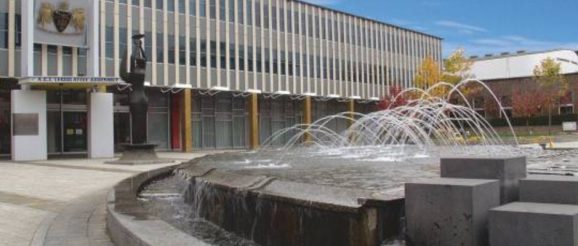ACT’s head of public service commits to change perception of unwelcome innovation

Just over half of ACT government public servants believe their directorate or organisation promotes innovation and creativity, prompting head of service Kathy Leigh to commit to working to raise the figure and to defend the sector’s record during COVID.
ACT’s most recent state of the service report, discussed at a parliamentary inquiry into annual reports on Thursday, shows only 59% of employees reported that their directorate or organisation promotes innovation.
Leigh said territory’s public service was “extraordinarily innovative”, with innovation one of the sector’s four core values, but she acknowledged the survey result was puzzling.
“You just have to look at the way the service has stepped up through COVID,” she told the hearing.
“Perhaps it’s just that it’s so ingrained in our service that people don’t immediately recognise it.”
But ACT Greens MP Johnathan Davis was unsatisfied with the answer, suggesting it was an area requiring more attention.
“That’s kind of an inspiring answer … it’s more than half of public service officials who don’t think that the organisation promotes innovation and creativity. That’s a huge proportion of the workforce,” Davis said.
Leigh said she was determined to raise the number for the next survey.
The ACT grew its graduate program to 72 last financial year, with 65% of candidates representing one of the government’s diversity groups.
Dr Damian West, the deputy director-general of workforce capability and governance, said the graduates brought a range of skills, including engineering, accounting, and human resources, health, legal and financial skills.
The service report also showed an increase in harassment being reported compared with previous years, with Liberal MP Leanne Castley asking why the figure had risen by 75% since 2018-19.
West said the reporting was a combination of “all reporting mechanisms” with 12 becoming formal investigations.
“The remaining of those results were resolved were resolved within the directorates … indicating to us that the local level responses in that process were ultimately quite timely and hopefully quite effective,” he said.
“Of those 12, six of them referred to alleged sexual harassment … and I believe that [investigations] are still ongoing.”
Chief minister Andrew Barr in an earlier hearing also defended the opportunity for public servants to work hybridly when quizzed about why the government wasn’t using its workforce to stimulate city areas.
“I need to categorically address this idea that public servants are just consumer fodder. They are not, I don’t accept that and they won’t ever be,” Barr said.
“We are not shoehorning people back in. They’re not robots. They’re not units of consumption. Their job is to do work for the people of the ACT, not to consume in our economy, that’s their private business what they do in terms of their consumption patterns.”
Barr said last year the era of working only from offices was “over”, with the government investing in a number of ‘hubs’ for public servants to work flexibility from across Canberra, where staff would work from for an average of one-to-two days a week.
